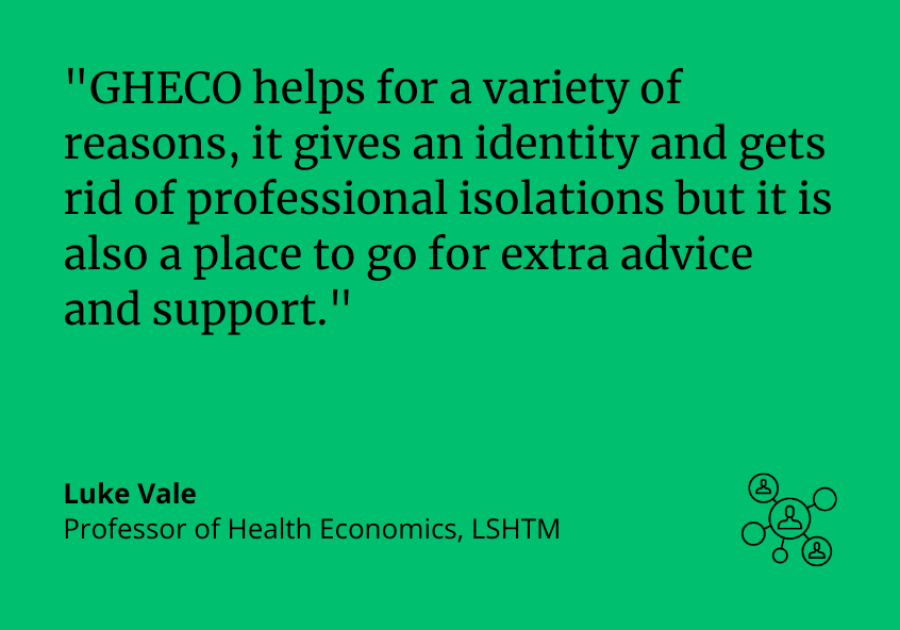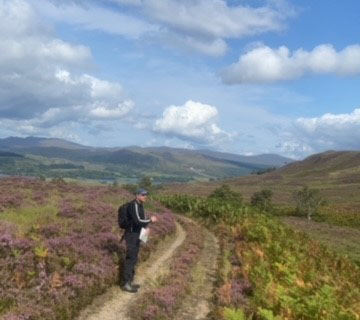
You joined LSHTM in November as Professor of Health Economics, can you tell us a little about your background before joining the School?
Before joining LSHTM, I was Professor of health economics at Newcastle University, where I led the health economics group, amongst other things. During my time there I was, at various points, the Director of NIHR’s Research Design Service, the Deputy Director of one of the research institutes within Newcastle University’s faculty of medical sciences and have had various other roles which kept me out of trouble… or got me into trouble, depending on the circumstances.
Before that, I was Professor of health technology assessment at the University of Aberdeen where I led a theme of work on health care assessment. My role was joint across two research units, the Health Services Research Unit and the Health Economics Research Unit.
Now you’re at LSHTM, what will your focus be?
The role in GHECO is, very broadly, economic evaluation using trial data. I’m choosing to interpret that broadly in terms of thinking about any sorts of studies that are going to generate new evidence that could be used to estimate whether or not a new, or existing way of working is a good use and fair use of resources.
That sounds really interesting. Where is this evidence used and what sort of impact does it have?
My work helps make decisions about what sort of tests, treatments and therapies people can access in the future, some of this will have impacts in the relatively near future.
The impacts my work will have varies. For example, the work for The National Institute for Health and Care Excellence (NICE) will directly impact healthcare policy.
The work for some of the other agencies is perhaps slower to have an impact. This is because it is part of a process of changing people’s opinions or changing what is available within a health service, such as changing the ability of a health service to provide something. That is a slow process sometimes.
What motivated you to pursue a career in health economics?
One reason was that it was an indoor job with no heavy lifting.
The actual truth is that I studied economics at O-level and then A-level at school, which I wasn’t initially intending to do, but I found it easy and I enjoyed it.
I went on to further study it at university and I still enjoyed it and was hoping to have a career as an economist.
I was introduced to health economics at undergraduate level when I took a course on public policy and a component of that was health economics. I also took another course on cost benefit analysis and the two came together and that is how I ended up here.
In some ways I’ve chosen things because I enjoy them and found them easy and I moved through from there, but there was no master plan.
You recently joined LSHTM, why did you decide to move to this role?
A new challenge. When I went to Newcastle I went to set up a new health economics group. At interview, I was asked how I would judge the success of that and my answer was, when I leave it will be successful if the group will continue to run when I’m no longer here.
For me, I was looking to move on and find my next challenge. Part of that challenge is helping the growth of GHECO and part is also to develop collaborations with colleagues outside the UK and throughout the world. In this, the goal is to learn lessons that can help improve the quality and relevance of work in both the UK and elsewhere.
How do you think GHECO supports your work and that of other health economists across the School?
There are probably more health economists here than anywhere else in the country, possibly one of the bigger places in the world. I think shaping the narrative and showing the strength and power of health economics at LSHTM is important and GHECO is part of a move to address that.
I’d be really keen to help promote GHECO so that people recognise the School for its many areas of excellence in health economics.
GHECO helps for a variety of reasons, it gives an identity and gets rid of professional isolations but it is also a place to go for extra advice and support. It provides an opportunity to learn from others and raise awareness of opportunities that are available.
What do you see as the most pressing issues in health economics and how do you think the work across GHECO contributes to addressing them?
I only focus on a very tiny part of health economics. The biggest issues are ones I’m only peripherally addressing. A lot of my work is how to do things better, often focusing on treatments and policies.
Perhaps the bigger things, and where GHECO has the experience and skills, is about how you organise health systems and make them the best they can be for the people they’re meant to serve.
Additionally, much of the work at LSHTM focuses on lower resource settings. There is a great need to do this as it is a far more pressing issue, as these settings really don’t have resources to waste.
My topic area feeds into those but at the lower level. My work focuses on the microeconomics side and hopefully it builds up and helps the bigger side. For example, some of the things I look at will affect very many people and that has implications for an economy.
What aspects of your role do you find most rewarding, and what challenges do you face?
It is probably supervision, helping develop earlier career researchers do what they need or want to do.
Part of the challenge sometimes is finding out what to do. What you start off doing in your early career is likely not what you’ll end up doing and supporting them in that is rewarding.
What is your biggest achievement to date or something you’re most proud of?
It’s actually about nothing I’ve done, but what I’m most proud of is the people I’ve helped. I’m really happy to hear about a new researcher who has had their first paper published and I’ve helped them along the way, or someone who has had a promotion or just received their PhD and I’ve supported them at some point.
Outside of your professional life, what hobbies or activities do you enjoy in your free time?
I do a lot of walking and a little bit of mountaineering. I’m hoping to do some more of that over the next few years.
LSHTM's short courses provide opportunities to study specialised topics across a broad range of public and global health fields. From AMR to vaccines, travel medicine to clinical trials, and modelling to malaria, refresh your skills and join one of our short courses today.

